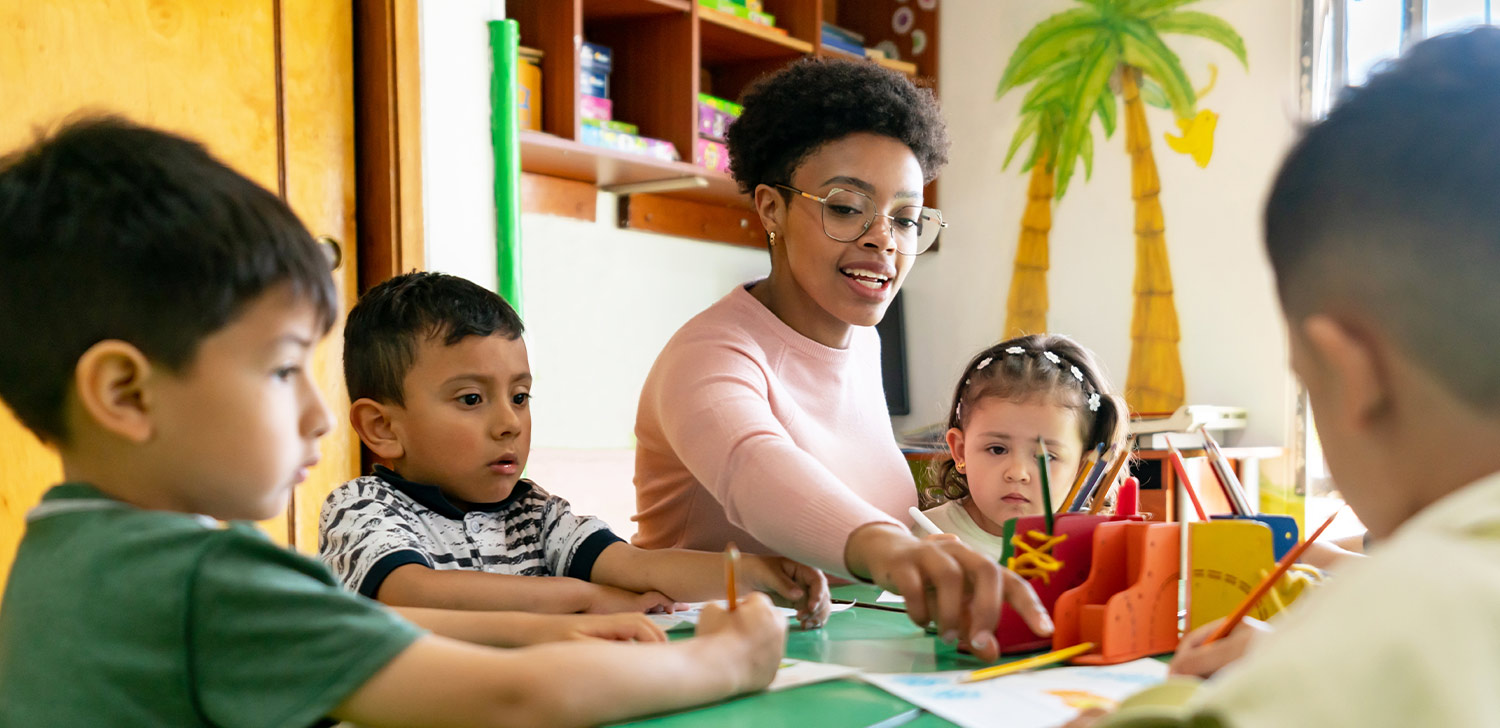
The positive effects of high-quality child care and early childhood education programs, as identified by the First Five Years Fund, include increased cognitive and social-emotional brain development, school readiness and increased school achievement, lower probability of special education placements, increased high school and college graduation rates and rates of employment, a more educated workforce, eventual personal and societal economic gain, and reduced health care costs. The Centers for Disease Control and Prevention adds that early childhood education can protect against, “the future onset of adult disease and disability,” and since these programs “aim to increase enrollment among children who are educationally underserved and experience health disparities, …[they] may help increase health equity.”
The Learning Policy Institute studied what appeared to be conflicting evidence regarding the benefits of preschool programs in its 2019 report Untangling the evidence on preschool effectiveness: Insights for policymakers, which found that the benefits of participation in preschool programs are substantial, but to fully appreciate these benefits it is important to compare similar groups of students who did and did not attend preschool and to evaluate the impact beyond preschool years.
The report identified various elements of a quality preschool program that contribute to future success including “sufficient learning time and small class sizes with low student-teacher ratios; well-prepared teachers who provide engaging interactions and classroom environments that support learning; ongoing support for teachers, including coaching and mentoring, with program assessments that measure the quality of classroom interactions and provide actionable feedback for teachers to improve instruction; research-based, developmentally appropriate early learning standards and curricula; assessments that consider children’s academic, social-emotional, and physical progress and contribute to instructional and program planning; and meaningful family engagement.” The report concluded that, “high-quality preschool leaves children better prepared for school, especially in terms of their academic skill development.”
In light of the strong research-based support for the positive role that high-quality early learning plays, California has implemented the California Universal Prekindergarten Program, which includes infant and toddler supports, universal preschool and transitional kindergarten, to “set children on a trajectory of lifelong success.” According to the California Department of Education’s “Universal Prekindergarten Planning and Implementation Grant Program-Planning Template,” the goal of the associated grant program is to increase access to pre-K programs at local educational agencies.
Recent legislation has helped to ensure that this type of quality early learning and care is provided to the most vulnerable children in terms of historic exclusion from opportunity:
- Senate Bill 1047 extends eligibility for child care and development programs and California State Preschool Programs to families in which a member of the family has been certified as eligible to receive benefits from specified means-tested government programs.
- Assembly Bill 210 excludes foster care payments made on behalf of a child or guaranteed income payments from income for purposes of determining eligibility for child care services.
- AB 321 prioritizes access to child care services and California State Preschool Programs for children who reside in homes in which the primary language is not English.
- AB 2806 establishes stringent requirements that must be met before a district may unenroll, expel or suspend a child from a child care and development program or a California State Preschool Program.
Providing a high-quality early education program requires having enough credentialed and well-trained teachers. Accordingly, the Commission on Teacher Credentialing (CTC) has endeavored to increase the number of qualified certificated teachers with a PK-3 Early Childhood Education Specialist credential. CTC recently adopted regulations, which are pending approval by the Office of Administrative Law, that include accelerated pathways to meet the requirements for this type of credential. Additionally, pursuant to AB 210, districts may request, if certain conditions are met, a one-year early childhood education emergency specialist permit/emergency transitional kindergarten permit that authorizes permit holders to teach all subjects in a self-contained TK general education classroom.
With the implementation of universal pre-K and recent legislation impacting early child care programs and preschool programs, CSBA has updated sample BP/AR 5148 – Child Care and Development Programs, which will be released in June, and BP/AR 5148.2 – Before/After School Programs and BP/AR 5148.3 – Preschool/Early Childhood Education, which were released as part of the December 2022 packet. This makes it a great time for districts and COEs to discuss their early childhood programs and review and update their board policies.
Given the interplay between early education and health equity, districts and COEs are also encouraged to review sample BP/AR 5141.6 – School Health Services, which was also recently updated and will be released in June.
Other resources:
- Universal Prekindergarten Planning and Implementation Grant Program – Planning Template: A Resource for Local Educational Agencies, December 2021: bit.ly/41UuKFA
- Meloy, B., Gardner, M., & Darling-Hammond, L. (2019). Untangling the evidence on preschool effectiveness: Insights for policymakers. Palo Alto, CA: Learning Policy Institute. bit.ly/2WHqgSg
- Centers for Disease Control and Prevention, Early Childhood Education: bit.ly/3pOJ5WJ
- First Five Years Fund: ffyf.org
- Universal Prekindergarten: California’s Great Start: adobe.ly/3WfTjeW